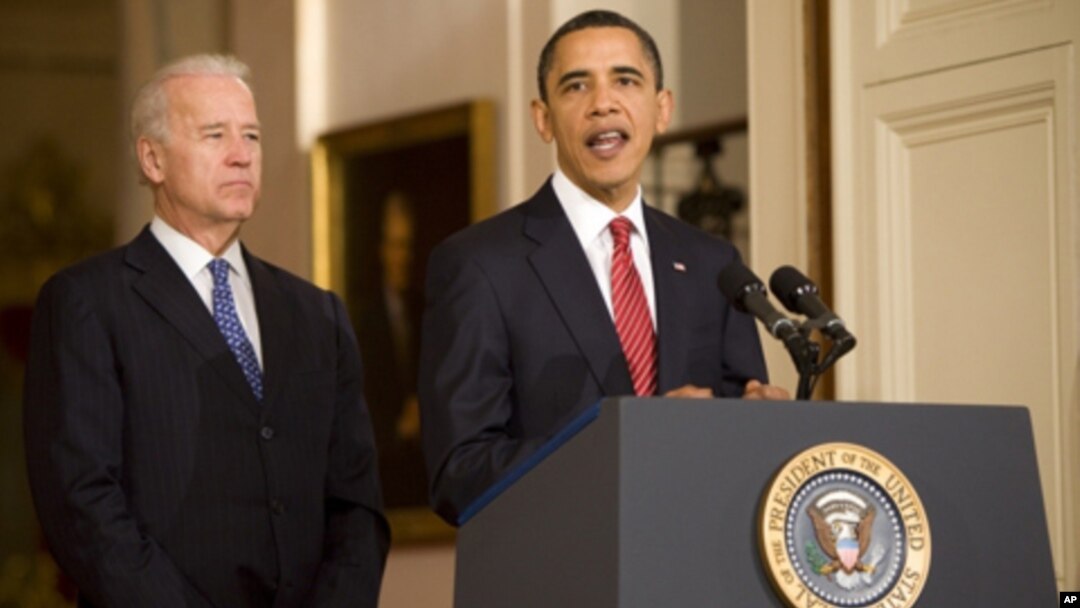President Barack Obama won a major political victory this week with congressional passage of his health care reform plan. Mr. Obama and congressional Democrats made history with the reform legislation, but politically the bill is a major gamble and opposition Republicans have vowed to exact revenge in congressional midterm elections this November.
Unlike many of his predecessors, President Obama scored a political success on health care. But it remains to be seen whether it is a political blessing or a curse.
Many political experts do see passage of the health care reform bill as historic, including Ross Baker of Rutgers University in New Jersey.
"This is something, after all, that first came to the attention of the American public 100 years ago when a national health insurance program was proposed by President Theodore Roosevelt, and successive presidents, mostly Democrats but not all, have favored it," said Ross Baker.
The Obama plan approved by Congress will eventually extend health insurance coverage to 32 million Americans who were previously uninsured. The plan will cost nearly $1 trillion over 10 years and will be paid for through a combination of tax increases and projected savings in health care spending. The bill will also curtail the ability of health insurance companies to limit or end coverage.
Mr. Obama was elected president in 2008 on a promise of change and quickly made health care his top domestic priority. After a battle in Congress that lasted more than one year, the president and his Democratic allies in Congress finally prevailed.
"We did not avoid our responsibility, we embraced it," said President Obama. "We did not fear our future, we shaped it."
Political analyst and author Richard Wolffe says there is little doubt that the scope of the Obama health care plan makes it historic.
"The underlying legislation is far-reaching and is sweeping," said Richard Wolffe. "It may not be everything everyone hoped for, but it does have an impact on this huge and growing part of the American economy, as well as being part of the Democratic [Party] dream for so many generations."
Even though the health care bill is historic, it is also a huge political gamble. Public opinion polls show more Americans oppose the Obama plan than support it, and the president was unable to win a single Republican vote in Congress.
Republicans like Indiana Congressman Mike Pence believe that the president and his Democratic allies in Congress simply defied the will of the American people and will now pay a steep price in the congressional midterm elections in November.
"This is not the president's House," said Mike Pence. "This is not the Democrat's House. This is the people's House, and the American people don't want a government takeover of health care!"
The health care debate also fueled the rise of the so-called Tea Party movement, loosely organized groups of grass roots conservative, Libertarian and anti-tax activists who opposed the health care plan as too much government involvement in the economy.
Conservatives may have lost the battle in Congress, but they have vowed to defeat Democrats who supported the bill in the November elections.
Tom DeFrank is a veteran political observer with the New York Daily News and a regular guest on VOA's Issues in the News program.
"I think the Republicans are doing what they are doing because they believe it works to their political advantage, and it is certainly clear for about the last six to nine months that it has worked," said Tom DeFrank.
The divisive health care debate has left a bitter aftertaste with lawmakers from both parties, and experts including Richard Wolffe see little hope for the kind of bipartisanship that President Obama talked about when he first came into office.
"Yes, another part of his ambition was to change the tone and the politics and the way politics is done in this town, and that has been a singular failure," he said. "They were not expecting the kind of permanent campaign that Republicans ran, which was, frankly, a little bit naïve, and that has frustrated his efforts to be a bipartisan leader, which was really his goal."
Most experts believe that the partisan nature of the health care debate makes it less likely that Congress will make progress this year on other important issues like immigration reform and climate change.
Obama's Historic Health Care Bill Also A Political Gamble

President Barack Obama and Vice President Joe Biden, 21 Mar 2010

